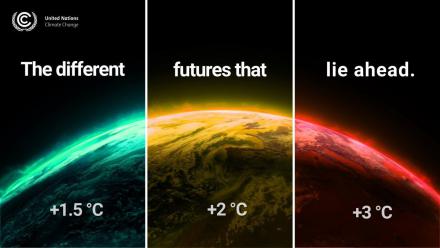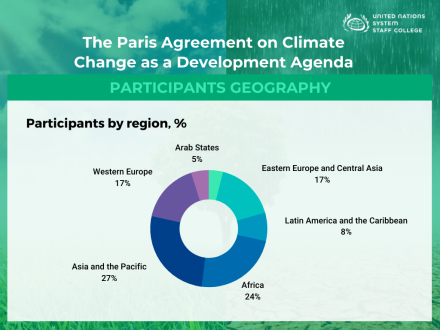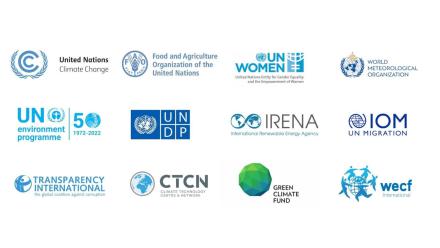
900 changemakers called to act now during record climate-change course
Radical steps are needed from all of us to avert a global climate disaster, a senior official from the UN agency charged with coordinating the global response to the climate crisis, told the participants of the 2022 edition of the online course, "The Paris Agreement on Climate Change as a Development Agenda" (PACCDA). The course has been jointly developed by the United Nations System Staff College and UNFCCC, as the two organizations work together to advance understanding and equip participants with the tools and frameworks to make positive, lasting change.
"Unfortunately, we are in a climate emergency and we need to take radical and very courageous action right now, said Patricia Espinosa, Executive Secretary of UNFCCC. “People are used to seeing climate change as very far away, but this is not the case anymore. This is a defining decade and we are a defining generation: we must act now.”
The free online PACCDA course comes at a critical moment, as the world is set to pass the 1.5ºC threshold by 2040, which is the irreversible tipping point for climate change, according to the Sixth Assessment Report of the Intergovernmental Panel on Climate Change (IPCC). A record 900 participants are taking part in the course from a variety of sectors and backgrounds, galvanized by the need for action.
From recurring heat waves and wild fires to melting glaciers and rising sea levels, humanity is already witnessing significant environmental changes that can compromise our existence and that of future generations. The course emphasizes that the science is clear: humans are the drivers behind these transformations, but that humans can act now to avert disaster.

Two powerful frameworks exist – the Paris Agreement and the 2030 Agenda – but they are not enough. Political will and collective mobilization are key if stakeholders are to set in motion the drastic changes needed. For that we need to forge a global partnership that can reach every city and every community towards climate action: we need to have changemakers committed to inspiring our generation.
With its largest cohort ever, the goal of PACCDA’s 2022 edition is to foster a network of people who will champion climate action in their communities, multiplying the efforts and raising awareness about climate change. By gathering 900 participants from 121 different nationalities, from multiple sectors, academia/think tanks (18 per cent), private sector (24 per cent), civil society (18 per cent), governments (14 per cent), UN system (11 per cent) and bilateral/multilateral development organizations (14 per cent), the course positions itself as a platform for climate activism.

Offered for free thanks to a generous contribution from the German Federal Government, PACCDA provides participants with the opportunity to broaden their knowledge on the Paris Agreement on Climate Change by exploring its connections with the 5P's – planet, people, prosperity, peace, and partnerships.
PACCDA offers not only self-paced classes and access to a great diversity of resources, such as reports, case studies and testimonials, but also provides a platform to connect participants with peers, specialists and speakers from all across the UN system. For the 2022 edition, organizers have prepared a special line-up of speakers from a broad partnership among different UN agencies and NGOs – click here to find the full list.

“The online format facilitated by UNSSC staff created an enjoyable and innovative learning experience, said John Paradis (Canada), who participated in PACCDA's 2021 edition. “The many presentations and online discussions allowed for a positive environment to share ideas and first-hand experiences taking place in other countries and industries. I highly recommend the course.”
Karol Carillo (Mexico) added, “Positioning environmental efforts at the heart of sustainable development will definitely lead to the necessary transformative changes needed for humanity in the upcoming years.”
“PACCDA was robust in context, provided significant up-to-date resources, and was highly dynamic, offering relevant scientifically and policy-based materials,” he said.
Learn more by following the conversation on social media and check our highlights by using the #PACCDA2022, #Learn4Climate and #UNSSCforClimateAction hashtags.